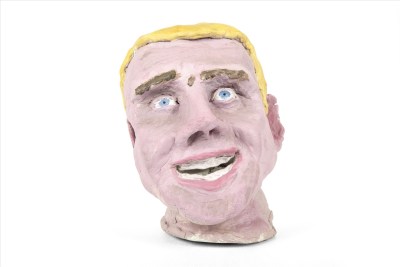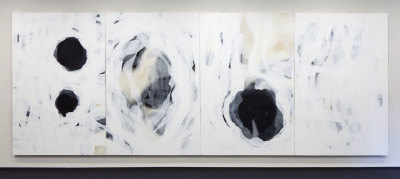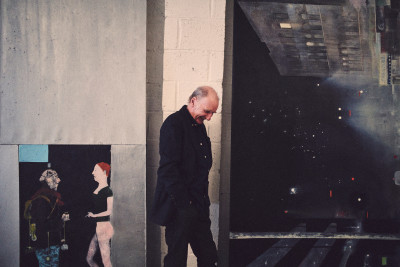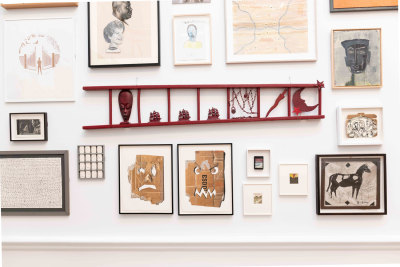In Memoriam: Alan Davie RA
In Memoriam: Alan Davie RA
By René Gimpel
Published 29 August 2014
The Academician’s art dealer and lifelong friend remembers a life well lived.
-
I knew Alan Davie (1920-2014) the way one comes to know a member of the family. Alan came into my life when he joined Gimpel Fils gallery in 1950. My father, Charles Gimpel, was director at the time and I was three years old. I grew up learning which family member was a fixture and which wasn’t – Alan was in the first category, because he was always present and, as such, he shaped my life, my thinking and ultimately my work as an art dealer, when I succeeded my father.
Alan, his wife Bili and Jane, their daughter, lived near Hertford. My brother and I would visit and see Alan’s paintings, which for us were matters of wonder. First and foremost was the colour. Alan was a great colourist, a master at mixing and remixing startling combinations, a magician – and shaman – for whom colour was the essence of his chosen vocation. Colour spread from the canvases to the walls of the artist’s home, to the recesses of his studio, to the accumulated impasto, inches deep, of his palette.
This love of colour was matched by a similar passion for music. Many instruments lay around his home, so many beautiful shapes stacked around a grand piano, dozens of scores lying on the lid. As a professional saxophonist Alan championed free-form jazz and I enjoyed several public performances that he gave. Five LPs were issued, each with a dust-jacket designed by the artist.
A few years ago, a German music publisher, specialist in the byways of the jazz world, reissued the LPs as CDs. I sat in on conversations between artist and publisher, only then realising Alan’s complete mastery of music-making, not just jazz but also the classical canon (most days he played Bach). Over the years however, Alan came to the conclusion that free-form jazz was not as satisfactory as the challenge of playing to a set score.
As a visual artist Alan emphasised the spontaneous gesture, the gesture that results in an image with as little mediated reflection as possible. He often failed to finish a painting – at least failed in the traditional sense of signing it off. This was because, for this artist, painting was a process rather than the creation of a discreet, isolated entity.
A painting in Alan’s studio might reach a point where the artist could decide that nothing further needed to be added; then, if it remained stored in situ, he might bring it out again much later and decide that the time had come to modify the image. He believed that a painting was not a static thing – it was unstable, and its meaning could not be fixed by the artist or by anyone else.
-
BP Spotlight: Alan Davie is at Tate Britain, London until 28 September 2014.



